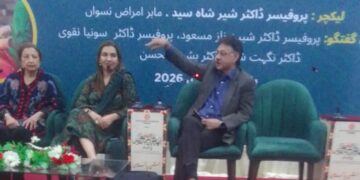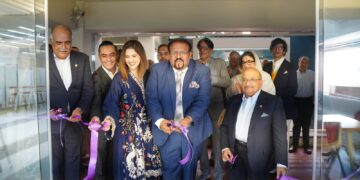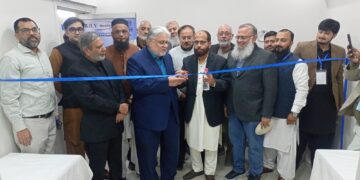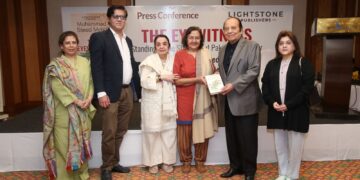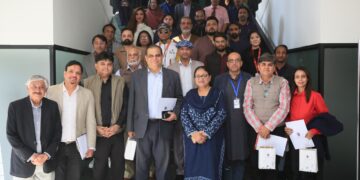November 2, 2021 Karachi: The NICVD performed its first intervention to prevent stroke in a 48 year old female came with a right sided stroke, the clot was removed and the stroke was prevented. The procedure led by Professor Irfan Lutfi (Interventional Radiologist, NICVD) and his team.
“The procedures was performed successfully without any complications. The patient Ms. Sofia aged 48 years was rushed to NICVD Emergency Department with history of RT side weakness, facial asymmetry and dysarthria for last half an hour. We did CT scan to rule ICH and then it followed by CT angiogram to confirm large vessel occlusion there was cut off at left M1 segment MCA” said Dr. Irfan Lutfi.
“After diagnosing, the patient was declared as intervention candidate and taken to Cath Lab. We did procedure aspirate thrombus and followed run shows open of all MCA territory. The patient clinically improved after the procedure and mobilized with full power”.
“The first six hours are of the utmost importance during that time period, blood clotting is removed from the brain, thus providing timely medical help. The patient is protected from many complications,” said Dr Lutfi.
He said it was alarming that the second major cause of death in Pakistan is a stroke and lack of proper awareness. But by the grace of Almighty Allah, now thousands of patients will be benefitted from this Free of Cost “Interventional Stroke Treatment” at NICVD Karachi.
Appreciating and congratulating team NICVD, Professor Nadeem Qamar (Executive Director, NICVD) said that a major breakthrough has been achieved in the medical history by NICVD Karachi with the introduction of catheter-based stroke treatment at NICVD Karachi. The NICVD has become one of the best tertiary cardiac care hospitals in the world.
“NICVD has become the first cardiac center of Sindh Province in public sector to have performed emergency brain stroke intervention and reverse patient’s paralysis. By the grace of Allah, we continue to perform this procedure with excellent outcomes totally free of cost for all patients”, said Professor Nadeem Qamar










